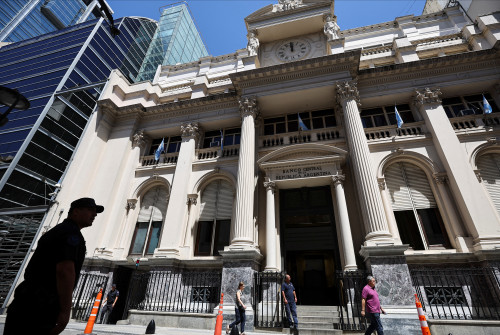BRASILIA (Reuters) – Brazil’s central bank chief Roberto Campos Neto expressed his opposition on Friday to the creation of a common currency, stating that in the era of digitalization it is unnecessary to have a shared currency for its purported benefits.
“That is a very old idea that solves a problem that doesn’t exist anymore,” he said at an event hosted by Valor Capital Group,
“If you believe in the advance of digital payments and digitalization and tokenization of processes, you don’t need a common currency to have the effect in terms of trade and efficiency that a common currency defends, that I don’t even know if it is there.”
His remarks follow President Luiz Inacio Lula da Silva’s recent advocacy for the BRICS group of leading emerging economies to consider adopting a common currency for trading purposes, thus reducing their dependence on the dollar.
Campos Neto emphasized the potential power of digital solutions in providing effective alternatives.
Specifically addressing the proposal of a common currency between Brazil and Argentina, which has also been previously mentioned by the government, he reiterated his opposition.
According to Campos Neto, a common currency would blend the characteristics of both countries, resulting in a mixture of their respective interest rates and inflation, which are currently at very different levels.
“We should have a ‘digital’ minister, someone should be thinking about digital solutions,” he added.
Regarding convertible currency, he stated that it is part of the bank’s plans, but emphasized the need for a gradual approach, asserting that the adoption of a currency by other nations should occur as a consequence of other factors rather than being the cause itself.
Campos Neto also said that the country’s central bank digital currency (CBDC), which is advancing through a pilot phase and is based on tokenized deposits, paves the way for a more digitally-oriented and competitive financial intermediation system.
He defended that Brazil’s CBDB is much easier to regulate than other forms of CBDCs since tokenized bank deposits will be subject to the same regulations that govern traditional deposits.
(Reporting by Marcela Ayres; Editing by Chizu Nomiyama)





